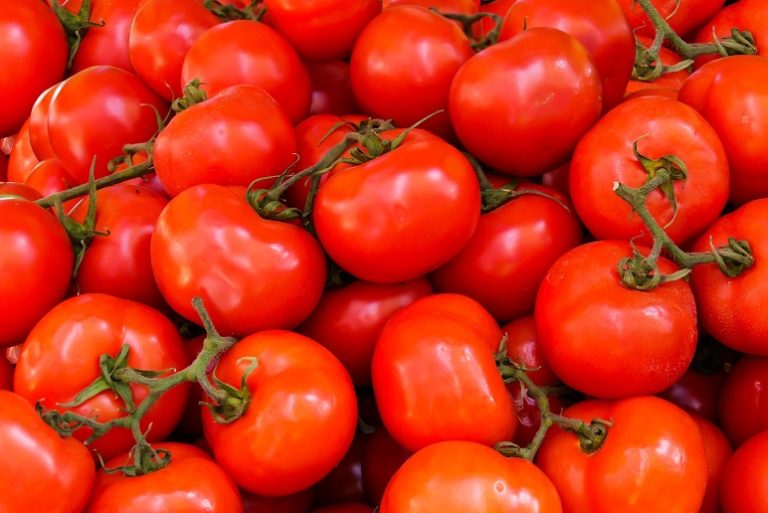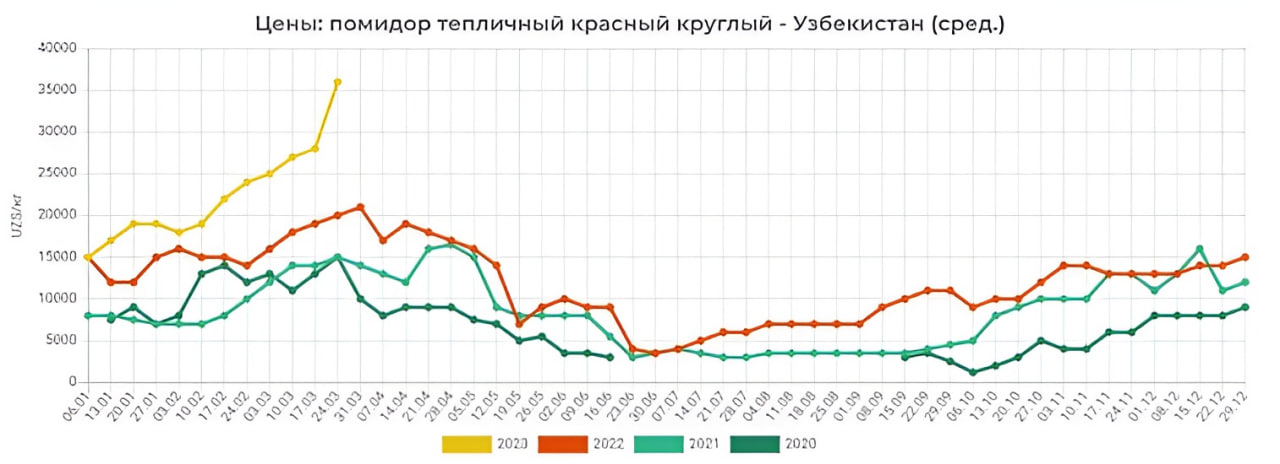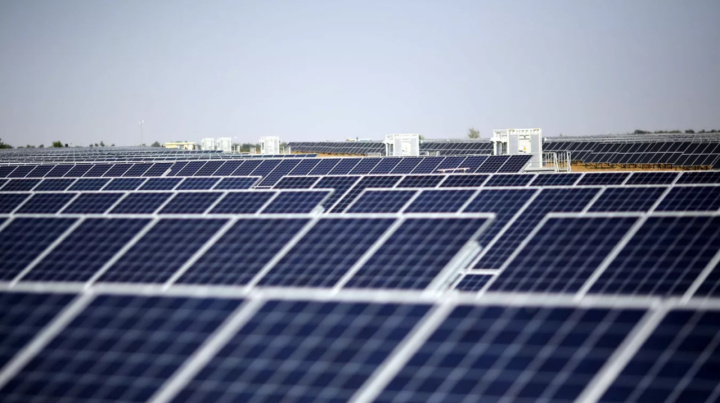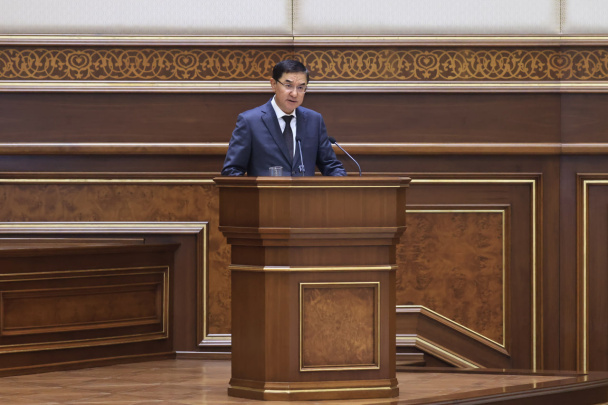Consequences of energy crisis: A large part of the tomato crop has been lost
Since the beginning of the year, the average wholesale price of tomatoes has increased by 2.4 times after the greenhouses were left without gas during severe cold. Experts say that the price of tomatoes in Uzbekistan will not decrease significantly in the near future, unless they are imported at lower prices.

Photo: Getty Images
The price of tomatoes in Uzbekistan rose to a record high. According to EastFruit, from March 17 to March 24 of this year, the average wholesale price of red round greenhouse tomatoes in Uzbekistan increased from 28,000 soums to 36,000 soums per kg, that is, by 28.6% in one week. Also, from the beginning of this year to March 24, wholesale prices of this product in the country increased by 2.4 times.

As of March 24, 2023, the average wholesale price of red round greenhouse tomatoes in Uzbekistan was 1.8 times higher than the same date last year and 2.4 times higher than the same date of 2020-2021.
As of March 24, 2023, the average wholesale price of red round greenhouse tomatoes (in US dollars per 1 kg):
• Uzbekistan – $3.16;
• Poland – $2.79;
• Ukraine – $2.60;
• Tajikistan – $2.29;
• Moldova – $1.61;
• Georgia – $1.16.
Kun.uz correspondent reports that as of March 27, 1 kg of tomatoes is sold in the capital’s central markets in the range of 34-36 thousand soums, and in supermarkets specializing in the sale of food products for 37 thousand to 45 thousand soums.
For comparison, in the corresponding period of last year, the average wholesale price of 1 kg of red tomatoes was 15-18 thousand soums, and the average wholesale price of 1 kg of pink tomatoes was around 13-17.5 thousand soums at the Kuylyuk dekhkan market.
Why did tomatoes become so expensive?
In January of this year, anomalous cold weather was observed in Uzbekistan. This factor may have played the role of the main catalyst in the sharp increase in the price of greenhouse tomatoes.
According to one of the businessmen engaged in greenhouse activities interviewed by Kun.uz, many greenhouses lost their tomato crop due to anomalous cold weather.
“The harvest was seriously affected by the sudden cooling of the weather. The next issue was that there was no gas from 08:00 to 17:00. After that, productivity fell. For example, if we harvested 90 or 100 tons per hectare, this year we are harvesting 30-35 tons. In previous years, 1 bush of tomatoes yielded 30 or 40 pieces on average, this year the size of tomatoes has decreased, so there are no kilograms. The harvest in most greenhouses was hit by the cold,” the entrepreneur says.
According to Khusan Khaydarov, commercial director of GDF Export, one of the largest exporters of fruits and vegetables in Uzbekistan, taking into account the growing season of tomatoes, the price of this product will not decrease significantly in the near future.
“Due to anomalous cold weather observed in Uzbekistan in the second ten days of January this year, many greenhouse owners lost their tomato harvest. During the cold season, the gas pressure in many greenhouse complexes dropped sharply, because during this period, there was a shortage of natural gas throughout the country. Naturally, the temperature in these greenhouses fell, that is, the temperature was significantly lower than the standards necessary for the tomato plant, which led to the crop death. According to our estimates, the yield of tomatoes in the country is on average 50 to 70%. The most damage was observed in greenhouses in Surkhandarya, Kashkadarya, Samarkand and Tashkent regions, as well as in the Fergana Valley,” the expert says.
“The vegetation period of this crop lasts from 85 to 140 days, depending on the species, varieties, cultivation method and conditions. The relatively warm temperature after the cold was observed only at the end of January and the beginning of February. Taking these factors into account, the price of tomatoes in Uzbekistan is unlikely to decrease significantly in the near future, if there are no imports at lower prices,” Khusan Khaydarov concludes.
Economist Otabek Bakirov writes that incorrect decisions had a greater impact on the increase in the prices of greenhouse crops than an anomalous cold.
“Tomatoes are cheaper in Ukraine, which is under missile strikes, in Poland, which is cut off from Russian gas, and in Tajikistan, which has no natural gas. That is, the anomalous cold is not a problem. First, they cut off the gas from the greenhouses, then they reconnected the gas, and they gave assurances that it would not be cut off until spring. After a week, there was no gas supply. If the gas had been shut off from the very beginning, greenhouses would have taken extreme measures, reserved coal and propane, or simply halted tomato planting.
The problem is not the high price of gas, the problem is the lack of gas and the lack of a market. Poland can buy liquefied gas for $1,000 and grow tomatoes cheaper than Uzbekistan. There is no need to mention Turkey or Georgia. The market and technologies should determine who burns gas and who burns coal,” the economist says.
The practice of converting greenhouses to coal
In Uzbekistan, 1,145 greenhouses with a total area of 2,466.2 hectares are scheduled to be converted from gas to coal.
1 hectare of a modern greenhouse (height 5-5.5 meters, if the heating boilers are economical, modern) consumes about 2.5-3 tons of coal per day. Even more is spent in cold and northern regions. If we take the winter season as an average of 120 days (from the middle of October to the end of March), it means that 740,000 tons of coal will be needed per year. Assuming that 62 tons of coal are consumed per wagon, this will be 11,935 wagons. There is a problem of delivering so much coal first to the country, then to the regions and to the greenhouses.
1 ton of coal will cost $60 to enter Uzbekistan. About $44 million will be spent on importing coal for greenhouses.
Related News

19:13 / 23.12.2024
World Bank approves $3.5 million guarantee for solar power plant in Khorezm region

16:27 / 21.12.2024
Tashkent's EV charging stations face dismantling and disconnection orders

16:33 / 19.12.2024
Uzbekistan and Pakistan to collaborate on joint development of agricultural machinery

11:16 / 19.12.2024



